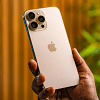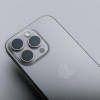Apple's BDT 3.7 lac worth AR headset can be a game changer for the industry

In a much-anticipated move, Apple unveiled its ground-breaking augmented reality (AR) headset, the Vision Pro, during a developer conference held at its headquarters. Marking Apple's first major product release in a decade, the Vision Pro is poised to ignite the AR/VR market, propelling the development of the metaverse, and bringing the digital virtual world closer to the general public.
During the conference, Apple showcased the Vision Pro's ability to seamlessly merge the digital and physical realms, allowing users to interact with digital content and applications using their hands, eyes, and voices. With its immersive capabilities, users can delve into films, television programs, and video games like never before, immersing themselves in a world that blends seamlessly with reality.
Apple CEO, Tim Cook, hailed the Vision Pro as a technological breakthrough, asserting that the fusion of digital content and the real world would unlock experiences "like nothing we've ever seen." The significance of this moment cannot be overstated, as Apple continues its legacy of unveiling transformative products, following the success of the Apple Watch.
While the Vision Pro's launch in the United States is not scheduled until later next year, industry representatives believe that Apple's entry into the AR/VR market will inject new optimism and invigorate the industry, particularly in light of the struggles faced by competitors such as Meta (formerly Facebook), Microsoft, and HTC in selling headsets to the average consumer.
However, critics have highlighted a few drawbacks of Apple's Vision Pro. The high price tag of $3,499 has drawn criticism, with netizens and researchers pointing out that it caters primarily to the affluent and tech-savvy consumers. To reach a wider audience and drive widespread adoption, Apple may need to consider bringing down the price significantly.
And while the Vision Pro boasts impressive capabilities, industry insiders note that the design could be more flexible, with trimmed-down sizes and improved ease of wearability. Users would benefit from a device that is comfortable to wear for extended periods and seamlessly integrates into their daily lives.
Despite these initial concerns, analysts foresee Apple's Vision Pro as a potential savior for the VR/AR market, given the company's formidable financial resources and expansive ecosystem. This development is likely to pave the way for the transition of AR/VR devices from mere entertainment tools to productivity tools, influencing product hardware, content ecology, and industry chain development.
Apple's latest offering has ignited a fresh wave of interest and speculation. Market analysts predict that the company's entry into the sector, which represents the future of human interaction with the world, will attract new players and investments, breathing new life into the industry.
Industry insiders predict that numerous Chinese brands, will release new AR/VR products by the end of this year or early next year, fostering healthy competition and driving innovation in the market.
While the Vision Pro is currently considered a first-generation "spatial computing" device, experts believe that over time it will evolve, ushering in a wave of "killer applications" akin to what the Apple Watch achieved for wearable technology.

 For all latest news, follow The Daily Star's Google News channel.
For all latest news, follow The Daily Star's Google News channel. 







Comments